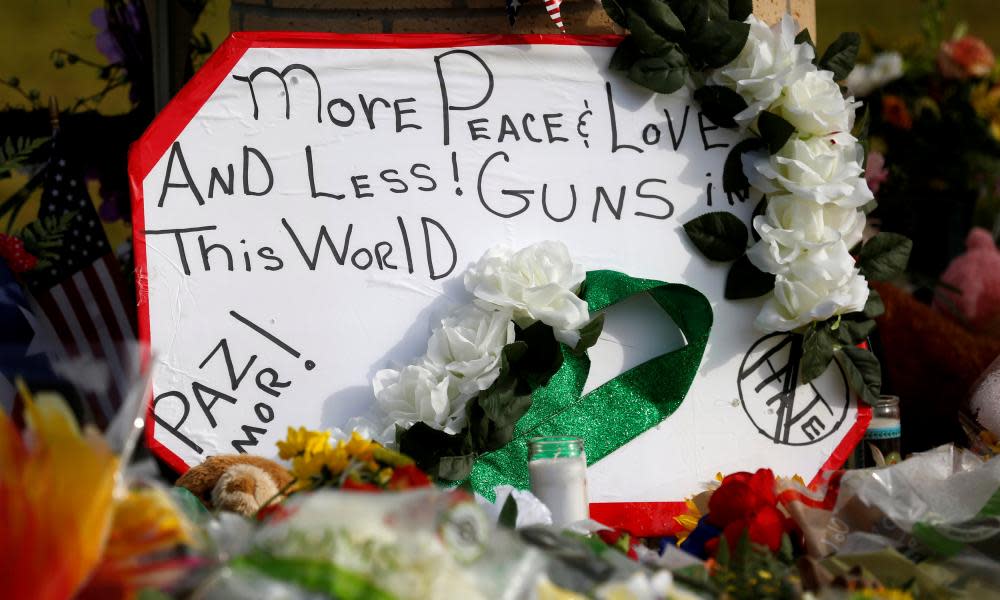It's monstrously wrong to blame mental health for school shootings

Mental health is a big problem. For me personally, with my various diagnoses, specialists, and meds, and for society in general. Not because there’s anything wrong with being mentally unwell – there absolutely isn’t – but because most people don’t understand mental health issues.
Poor understanding turns to fear.
Fear turns to hate. Or even worse, apathy.
Sometimes it’s the apathy that’s the worst part of all.
This manifests itself in innumerable ways. Mental health still receives a much smaller fraction of health funding than other parts of the system, despite affecting 1 in 5 Australians each year, and nearly half of us across our lifetimes. We shunt people with mental illnesses away: from asylums to prisons in the 1970s, from prisons to the streets, from the streets back into the unforgiving arms of the law.
And we blame them. For everything.
Mass shooting? It was the psychiatric meds. Increases in violent crime? It’s probably the crazy people. It is not enough that mental illness carries with it a ponderous burden of stigma, suffering, and death. We also feel the need to blame every issue imaginable on people who are usually more of a risk to themselves than anyone else.
It is wrong. Terribly, monstrously incorrect. Blaming the very people we should be helping because it’s easier than admitting our society has issues that are not easy to fix.
And it is something that we desperately need to stop doing.
You can see perfect examples of this monstrous trope after the recent school shooting in the USA. Instead of blaming the guns, people started blaming the psychiatric medications that the shooter was reported to have been taking. It is a common refrain – “Mass shooters are just mentally ill! What this murderous rampage really means is that we need to do more for mental health”.
Never mind that the rest of the world prescribes these same drugs and somehow avoids children being regularly shot at school.
Never mind that the evidence clearly demonstrates that people with mental illnesses are far more likely to hurt themselves than others.
Never mind that this paints a story of murder and mayhem that is no more than wild supposition.
We hate, we fear, we stop caring.
And people die.
To clarify, I should tell you that there is absolutely no connection between mass shootings and mental health medications. There is some question about certain drugs, because they may cause people to become more violent, but the increase in risk is tiny, fleeting, and not well demonstrated even in extremely large trials.
There does not appear to be any increase in aggression from ADHD meds – indeed, the opposite appears to be true: when kids with ADHD start on their meds, they become less aggressive.
This is not particularly surprising. ADHD meds may not be a panacea, but there is good evidence that they improve the lives of many people who take them.
This is one on a long list of things that have been found to not be related to mental health. Guns and crime top the list, but homelessness, car accidents, stock prices, and more are written there in news articles all year round. The list of things that we’d like to blame on that convenient scapegoat goes on and on.
There are different problems with each of these hypotheses, but they often share one fundamental flaw: none of them take into account how society impacts mental health problems. We blame homelessness on mental health issues, because the majority of people who are homeless have at least one mental health diagnosis, but ignore the role that society plays in putting these people on the streets.
We blame our societal ills on mental health, when really the issues are the same old story: inequality and disadvantage compounded over and again, with those at the bottom falling prey far more often than those at the top.
That’s not to say that we couldn’t do a lot for these issues by providing more effective and well-funded mental health services: we probably could. I imagine that we’d reduce the prison population significantly by massively increased the number of intensive psych beds available, if only because there are many innocent people kept in jail because there are no available beds for them.
But the bottom line is that the underlying cause of these issues is not mental health. If someone is sleeping on the street because they didn’t have adequate support to pay for both their psych meds and their rent, is that a failing of mental health services or society as a whole?
If we create an environment where people are doomed to fail, how can we blame them when they do?
So what can we do?
The problem here is that the answers are simple, straightforward, and incredibly difficult to implement. As with many public health problems, we can easily point to many of the places that mental health issues come from — poverty, disenfranchisement, racism, intergenerational disadvantage — and we can propose what would likely be effective (partial) solutions: universal basic income, improved affordable housing, truly universal health care coverage, community-based mental health care.
But these solutions, while likely pretty effective, are expensive. They’re politically difficult.
We won’t see them any time soon.
In the meantime, there are innumerable charities that you can donate to. And, of course, you can vote. Find the politician who wants to help people with mental health problems, instead of blaming them.
We can all make a difference.
It may be small. But that is far, far better than no difference at all.
Gideon Meyerowitz-Katz is an epidemiologist working in chronic disease

 Yahoo News
Yahoo News 